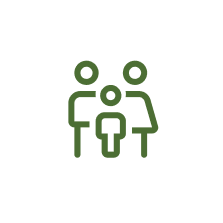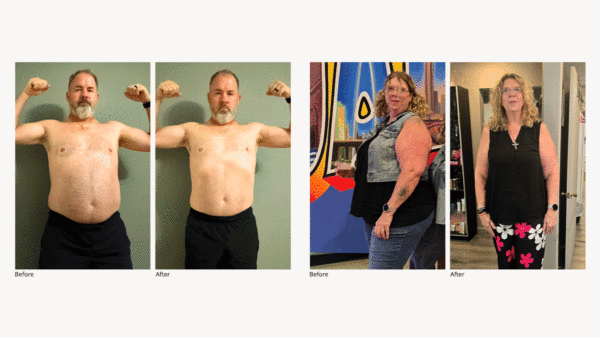 KENDRA: How do we empower the people on our team to be able to reach their potential?
KENDRA: How do we empower the people on our team to be able to reach their potential?
JERRY: This is a very important subject. I believe that most people want to be a better version of themselves. They want to be healthier, happier, more prosperous, and to be able to help others. The main reason they don’t develop to their full potential is because of fear. When I think about how to empower or develop someone, I do this by keeping it simple and analyzing whatever they might be afraid of and then cause them to believe in themselves. Eliminating fear will free us up to take a few more steps towards our goal.
KENDRA: That is a very powerful point. We need to take away fear and add back in belief.
JERRY: We start there. What is it we’re afraid of? Maybe it’s talking to people. That was me at one time. But then I thought, “what am I afraid of?”. Am I afraid of just meeting someone new who might turn out to be the best friend I ever had? Am I afraid of meeting someone that might be the next biggest Promoter in my team? All of the sudden, if I analyze it, I realize that I need to stick my hand out, say “hello” and open that door to many possibilities.
KENDRA: It sounds like you conduct a risk/reward assessment in your head.
JERRY: That’s right. I want to get somewhere and I know what I have to do and if I’m afraid I just have to analyze it and get over it. Eliminate that fear.
KENDRA: You mention ‘eliminate fear’. But you’ve always encouraged me to manipulate my fear. To take advantage of it. Pointing out that fear can be one of our strongest motivators to succeed.
JERRY: That’s right. When I think back, since I started off in a state of poverty, I was afraid of poverty. Fear of poverty motivates me to this day. I don’t like being poor. I didn’t like the fact that I couldn’t help someone else. I wanted to do good. Then getting movement and getting going will make fear subside.
KENDRA: Once we’ve addressed this, what’s next?
JERRY: I like to show people what’s possible. By showing them what happens if you build your organization, what’s the income potential, what’s possible in personal growth. I like to do this by sharing stories of people just like me and just like them. Who have conquered fear and then achieved these targets and goals. There’s nothing like stories to encourage us to do better and cause us to believe that we can do it. Believing in what we can do eliminates the fear and moves us forward.
Once someone gets on the path, the next point is to make sure that they get recognized for their progress. Once we get past our basic needs of food, shelter and clothing, we then start to add a little more comfort to our life as our income increases and as our health improves and we feel better. Then as we build we achieve goals. Whether it’s “I lost 20 lbs” or “I built my business and made $500”. Then it’s important to recognize people for that achievement.
KENDRA: That’s an important point. It’s not enough to rely on the company’s recognition, is it?
JERRY: No. There’s nothing more powerful than peer recognition at the local level in your team. Recognize someone for their achievements of all sizes. For example, if someone’s afraid to talk to people and I see them talk to someone, I like to recognize them for it, “You did great. If you keep doing that you’re going to be a big success”. Recognition cannot get too small. But recognition also needs to be real. You can’t recognize someone for doing something they didn’t really do or they’ll feel worse.
KENDRA: Now that we’ve covered recognition, what’s next?
JERRY: As leaders, we have to have a mentality of serving other people. That means we help people because we care for them. We give them our time, our attention, and we lead by example. It goes back to the biblical principle of “love your neighbor as yourself”. Anytime you are serving or giving, you are going to be rewarded for it. The people you do give to need to be the ones who are showing some activity. It’s a waste of your time to give your attention to people who aren’t willing to try. If they don’t try then they just aren’t ready. Something could be going on in their life that we don’t understand. But if they’re willing to put the effort and energy in, then I’m going to be there for them to keep reminding them of what’s possible, of their own why and goals, and keep saying to them “you can do this”. Do the thing you’re afraid to do, until you’re no longer afraid.
Once we have our why and goals laid out, we need to be committed to stay the course no matter what happens. Decide that no matter what happens I’m going to be a better person, physically, mentally and spiritually. Blessings come to people who persevere in the direction of their goals, no matter how long it takes to get there. Success is not a place you get to, it’s a trip. It’s the road leading there. You’re successful the minute you take one step in the direction of your goal, and all you have to do is keep being successful. Then when you get to where you thought you wanted to be, set some more goals. Getting there isn’t half the fun, it’s all the fun.
KENDRA: That is so important to remind people of their goals and be a constant encourager towards those goals. And a key aspect of that is actually knowing the goals of the people on our team.
JERRY: Yes, in fact, I always made it a point that everyone on my team needed to carry a list of goals in their pocket at all times. I would ask them to show me their goals and if there were ones ticked off then I would have them make new ones. Our goals are a reflection of our ‘why’. And our ‘why’ is the very core of what makes us tick. Once we have our ‘why’ in place, we can build on it and make it happen.
KENDRA: Something that’s always stood out to me about the type of encouragement you give is that you’ve always focused on strengths. Not pointing out where someone is incompetent, because none of us are perfect, right?
JERRY: You’ve hit on my hot button because whatever you focus on becomes bigger. If you pick someone’s weakness out, you make it larger and it destroys them. Don’t worry about the weaknesses. Highlight the strengths and you’ll notice that over time the weaknesses will start to get better. If you focus on the weaknesses, their strengths start to get weaker too. Pick something good about them, keep talking about it, make sure you show you appreciate it and they should feel proud of it.
To listen to more interviews by subscribing to the NeoLife Podcast:
Apple users listen using the Podcasts App.
Android users listen using the Podcast & Radio Addict App.
For any entrepreneurs out there who have a passion for sharing good health… NeoLife is redefining the world of startups. Put simply, it’s like a tech start-up, but with nutrition. There are low barriers to entry because NeoLife provides the infrastructure that any successful business needs, as well as consumable products, and a compensation plan. So instead of having to raise hundreds of thousands of dollars to get started, it makes entrepreneurship accessible to everyone. You can own your own NeoLife business and it can be passed down as an income-generating asset to future generations. For more information please visit NeoLife.com or call 800.432.5842. To learn how to build a foundation of good nutrition for you and your loved ones, visit ShareNeoLife.com.
















